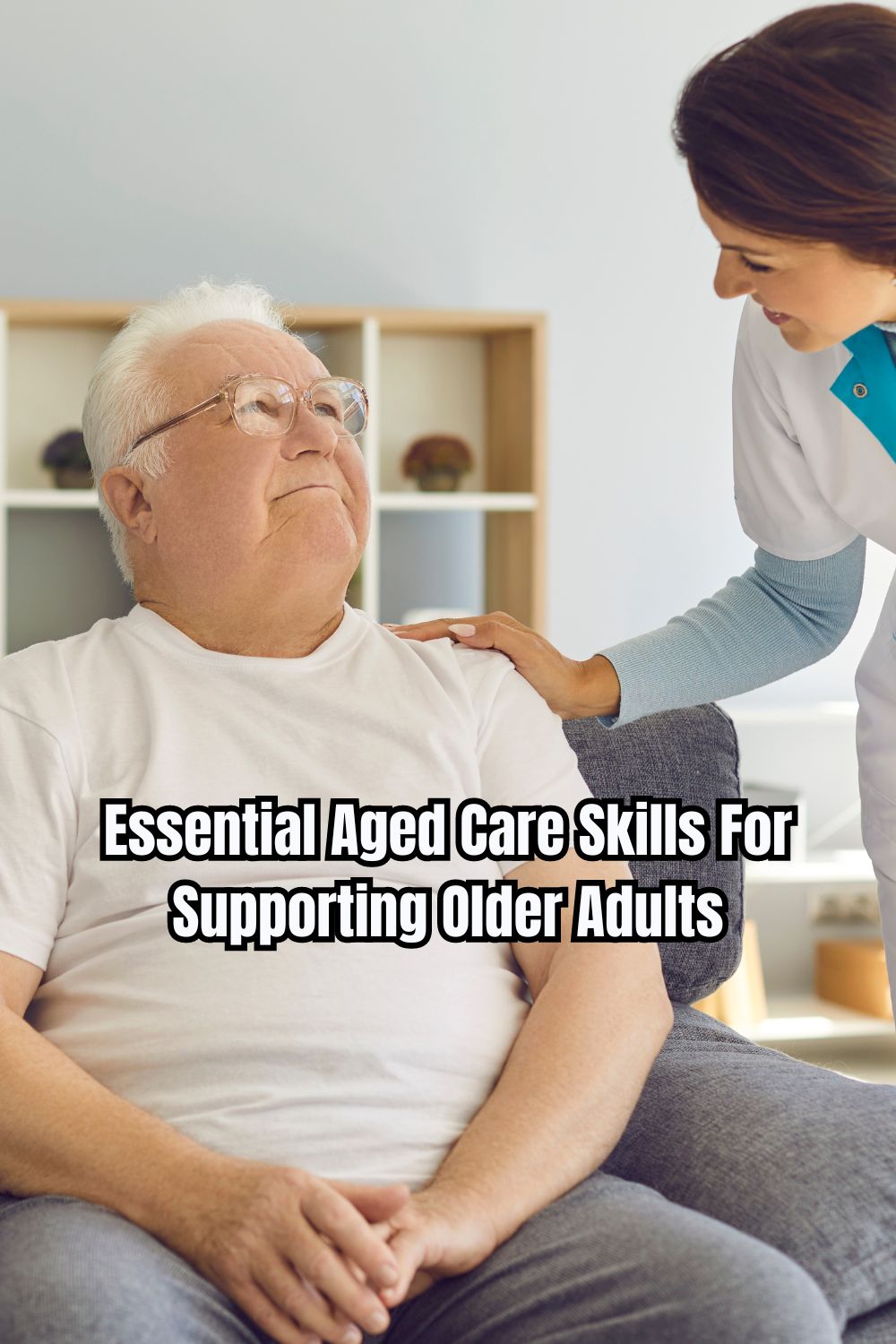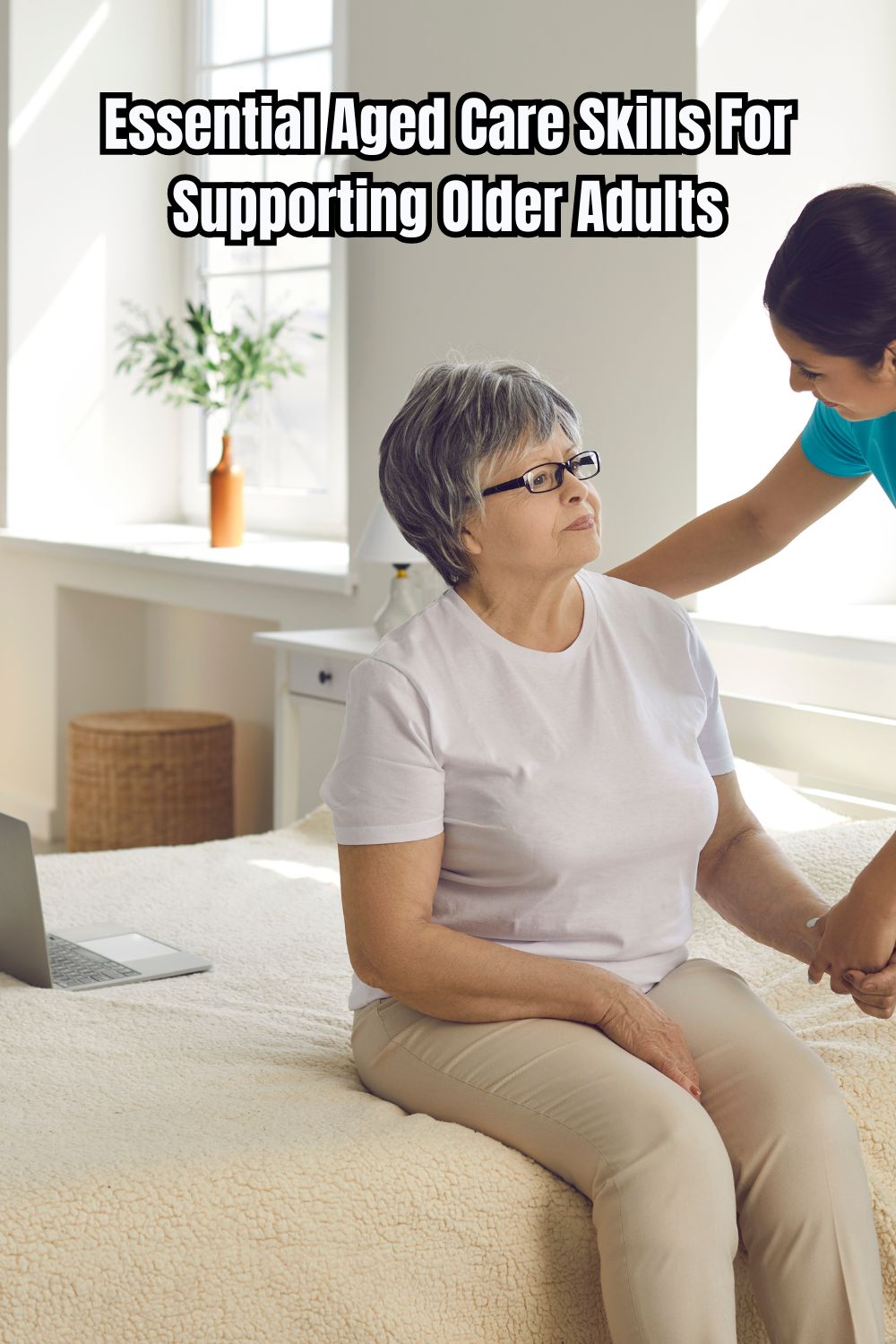Are you looking for ways to support older adults in your life? Here are Essential Aged Care Skills For Supporting Older Adults

Essential Aged Care Skills For Supporting Older Adults
As we age, our needs and preferences naturally evolve. For older adults, especially those requiring some level of assistance, having the right care in place can make a world of difference. But what exactly makes ‘right’ care? It all boils down to skilled professionals who understand the unique challenges and opportunities that come with later life.
The reality is, our population is aging at an unprecedented rate. This means the demand for qualified aged care workers is on the rise. If you’re interested in a rewarding career that allows you to make a positive impact on people’s lives, then aged care might be the perfect fit. But what skills are essential for success in this field? Discover key skills for aged care service and how you can contribute to a fulfilling and enriching experience for older adults.
Technical and Medical Skills
In the field of aged care, having a strong foundation in technical and medical skills is essential for delivering effective support to older adults. These skills ensure you can provide safe, effective care and identify potential health issues early on.
- Helping Manage Medications: Many older adults require regular medication for various health conditions. Understanding medication management involves knowing how to properly administer medications (oral, topical, injections), storing them safely, and monitoring for side effects. You’ll also need to be familiar with potential drug interactions and how to communicate any concerns to nurses or doctors.
- Basic First Aid: Being prepared for emergencies is essential. This includes having first aid skills like CPR and choking hazard response. Knowing how to handle situations like cuts, scrapes, and minor injuries can also provide peace of mind for both you and the older adult you’re caring for.
- Recognizing Signs of Health Issues: While you won’t be diagnosing illnesses, being able to recognize common health issues in older adults is a valuable skill. This might include changes in behavior that could indicate dementia, recognizing the signs of a stroke or heart attack, and being aware of symptoms associated with chronic conditions like arthritis or diabetes.
- Staying Up-to-Date: The field of aged care is constantly evolving, with new techniques and technologies emerging to improve the lives of older adults. Continuing learning shows initiative and taking the bull by its horns that best practices are being followed. These may include attending workshops for certain conditions, being oriented to newly developed devices, or being involved in computer-based training modules that some aged care organizations offer.
Empathy and Emotional Support
The foundation of great aged care lies in building strong emotional intelligence and developing a sense of empathy toward building trustworthy relationships.
Imagine this: an independent senior is feeling frustrated after a fall that makes it difficult for her to complete her daily tasks. Technical skills are important to ensure her safety, but empathy allows you to see the situation from her perspective.
Here’s how to put empathy into action:
- Active Listening: Give older adults your full attention when they speak. Make eye contact, use open-ended questions, and avoid interrupting. This shows you care about their feelings and concerns.
- Validation: Let them know their feelings are valid. Phrases like ‘It sounds like you’re feeling discouraged’ or ‘I understand why you might be frustrated’ go a long way.
- Positive Communication: Use a calm and respectful tone. Avoid talking down to older adults and focus on clear, concise communication.
- Celebrating Small Victories: Taking a shower independently or completing a favorite hobby can be a big deal for some older adults. Recognize and celebrate these achievements, no matter how small they may seem.
Patience and Flexibility
Older adults may experience slower response times, require tasks to be repeated, or have difficulty adjusting to new routines. This is perfectly normal and requires a calm and understanding approach.
- Patience in Action: Imagine a senior who struggles with memory loss. He might ask the same question repeatedly or become frustrated while getting dressed. Losing your patience will only make the situation worse. Instead, take a deep breath, respond kindly, and offer reassurance. Patience in repeating instructions or breaking down tasks into smaller steps can go a long way.
- Flexibility is Key: Individual needs and preferences can vary greatly among older adults. What works well for one person might not be ideal for another. Being flexible allows you to adapt your care approach to ensure it aligns with their specific needs and desires. This might involve adjusting meal times, incorporating preferred activities into their routine, or even being open to learning how to use new tech items to assist them, such as voice-activated speakers or medication reminder apps.
Effective Communication
Being able to clearly understand and be understood by older adults is essential for building trust, addressing their needs, and ensuring their safety.
- Adapting Your Style: People communicate differently, and this becomes even more important as we age. Some older adults might have hearing impairments, requiring you to speak louder and face them directly while talking. Others might be experiencing cognitive decline, so using simpler language, breaking down tasks into steps, and allowing extra time for comprehension is crucial.
- Non-Verbal Communication: Non-verbal cues like facial expressions, body language, and tone of voice play a significant role. Maintain eye contact, use a warm and friendly tone, and pay attention to the older adult’s body language to understand their comfort level and receptiveness.
A Rewarding Career Path
A career in aged care is more than just a job; it’s an opportunity to make a real difference in people’s lives. The skills you develop—from technical knowledge to emotional intelligence—will empower you to provide exceptional care, promote well-being, and build meaningful connections with older adults.
If you’re looking for a career that’s both challenging and rewarding, filled with opportunities for growth and personal fulfillment, then aged care might be the perfect fit. Start your journey today and discover how your skills and compassion can contribute to a brighter future for our aging population.

Leave A Reply!